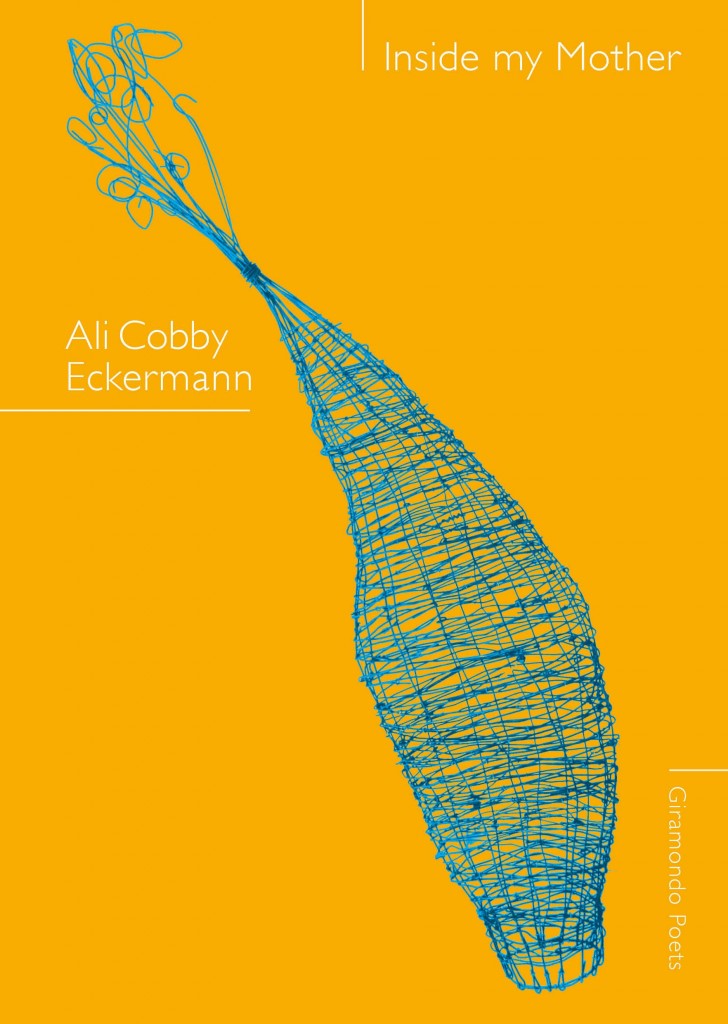 In the title poem of Inside My Mother, we are immersed in the retching, garbled moments of someone between life and death. The narrator’s need to soften her mother’s hair with leaves is an intimate ritual that unfolds slowly—at times grotesque, other times clear and still. We feel we are witnessing something terrible, and sweet, perhaps something we haven’t earned the right to see. The mother’s increasing incoherence speaks of familial loss, silence, and an urge to trace heritage: to patch back what has been broken.
In the title poem of Inside My Mother, we are immersed in the retching, garbled moments of someone between life and death. The narrator’s need to soften her mother’s hair with leaves is an intimate ritual that unfolds slowly—at times grotesque, other times clear and still. We feel we are witnessing something terrible, and sweet, perhaps something we haven’t earned the right to see. The mother’s increasing incoherence speaks of familial loss, silence, and an urge to trace heritage: to patch back what has been broken.
Several poems in the collection share these themes. Ancestors are traced through dreams, rituals, surreal landscapes, and domestic scenes. The voice is often one of reunion, of reassertion. Eckermann writes that the collection came about at the time her mother and several other mentors and healers passed away. The collection is about coming of age as much as it is about yearning: ‘no longer foetal I must arise / no longer prone she has arisen’ (‘Dip’). While working through her grief, Eckermann also became the familial matriarch.The image of a newly-orphaned joey in the narrator’s arms in ‘A Tragedy’ speaks allegorically of ideas threaded throughout the collection: “the joey’s / eyes meet mine there is trust in tragedy”.
Eckermann’s style ranges from the meditative and ritualistic to popping, bombastic rhythms rendered using spits of vernacular. In a tragic embodiment of the latter, ‘Kulila’ speaks of community and the need for oral storytelling to retain the memory of a massacre. ‘Marry Up’ is a delightfully fractured ‘yarn up’ through time, speaking with a graceful fatalism that recalls Gwendolyn Brooks’ ‘We Real Cool’. Towards the end of the collection, ‘Jacob’ and ‘Please Brother!’ burst with the frustration and tenderness of syncopated domestic relationships.
We are also shown the fear of forgetting, of losing oneself, of disuniting with nature. ‘Amnesia’ depicts the raw horror of obliteration, and leaves us with an image of what happens after we serve our purpose: ‘the street grows narrower / silent dogs trail behind me’. Inside My Mother beats with anger and sadness, but also a deep calmness. It is imbued with respect for tradition, and the need to keep ‘a pebble of her in my pocket’ (‘Ngingali’). Several of its poems would prove a pertinent study as a response to the flawed narrative of ‘colonial Australia’.
Emma Rose Smith writes manic poetry, smelly-lady nonfiction, and fiction that overuses the word ‘ululate’. She is often mistaken for a vegetarian. She hopes to create an interactive guide to local literature at spokensydneystories.tumblr.com. Go on, say hello.
